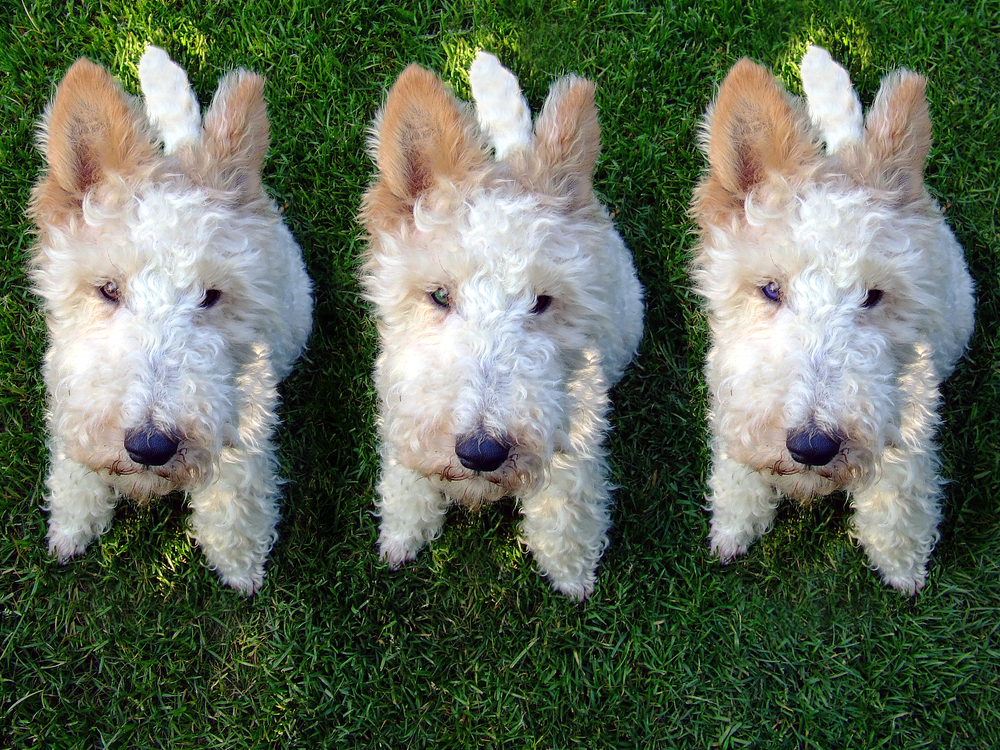Pet Cloning: Is It Safe? Does It Make Sense?
 Our pets are with us such a short time and no one wants to say goodbye to a beloved pet. With pet cloning, you may not have to. Multiple companies can currently clone your dog or cat with a simple procedure — though it comes with a hefty price tag. What are your options for cloning your pet, and what are some of the possible risks and ramifications?
Our pets are with us such a short time and no one wants to say goodbye to a beloved pet. With pet cloning, you may not have to. Multiple companies can currently clone your dog or cat with a simple procedure — though it comes with a hefty price tag. What are your options for cloning your pet, and what are some of the possible risks and ramifications?
The Basics: What is Cloning?
The definition of cloning is to “make an identical copy.” According to the pet-cloning company, ViaGen, “A cloned animal shares the identical genes from the donor pet, just like naturally occurring identical twins do.” Cloning preserves your pet’s exact genetic identity.
What is the Cost?
The cloning itself costs $50,000 for dogs and $25,000 for cats according to ViaGen. The price includes state-of-the-art housing, high nutrition diets, expert veterinary care and many other features that enrich the lives of the newly cloned puppy or kitten to keep them happy and healthy. It also includes care and surgeries for female dogs that serve as egg providers and surrogates for the cloned pet.
In addition, you need to cryogenically store a biopsy of your pet’s tissue and cells. This genetic preservation has a current one-time fee of $1600 plus $150 per year to store the tissues and cells.
Cloning is guaranteed in that you are refunded if the cloning attempt is not successful.
The Process
How does the cloning process work? One company, My Friend Again, lays it out like this:
- Order a biopsy kit that to be delivered to your veterinarian.
- Your pet undergoes a minor biopsy procedure to extract quality tissue and cells.
- Your veterinarian stores the tissue and cells properly, and ships them back to My Friend Again where they will freeze and store them in liquid nitrogen (genetic preservation).
- It takes 6 months for the clones to be born and another 2 months before they can be sent to the owner.
According to Dr. Katy Nelson in Washington’s Top News, the actual cloning process goes as follows:
- DNA is extracted from the pet to be cloned via the tissue biopsy which is cryogenically preserved.
- “Surrogate” animals create fertilized eggs which are extracted.
- The DNA is then erased from those eggs, and your pet’s preserved DNA is inserted.
- Those altered eggs are then implanted back into surrogate animals, which may or may not get pregnant and carry them to term. And multiple surrogates may be impregnated to produce one viable clone.
What are Veterinarians saying?
There is little health risk in collecting the tissue from your pet. However, there are other factors to consider that veterinarians would strongly urge you to keep in mind.
John Fishwick, the president of the British Veterinary Association, said this regarding expectations you may have for your newly-cloned pet:
“The loss of a beloved family dog is always upsetting and it’s easy to see why people may wish to clone their pet, but it is important that people are aware that cloned pets will not have the same personality and behavior as the original animal.” (source)
Cloning cannot guarantee a perfect physical copy or that they will have the same personality. There are many factors that make up who we are and how we act, both human and animals alike. Outside influences have a significant impact on our personalities that genetics alone cannot be responsible for. Your new puppy or kitten may or may not be an exact biological copy, but may not necessarily have the same personality as the original pet.
There are also the hidden dogs and cats of cloning that raise animal welfare issues.
When you think, “What I wouldn’t give to have my pet back”, consider the benefits and risks. Please ask your veterinarian or any one of us here at OVRS if you have any questions regarding cloning your pet. This decision is solely up to you, but we can assist you in collecting a tissue biopsy to return in your biopsy kit if you decide to go forward with cloning.


